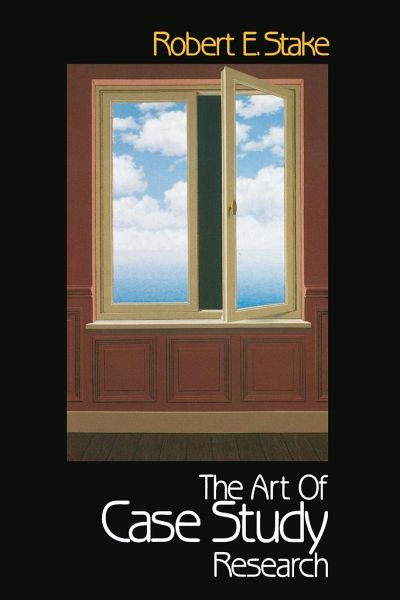
The Art of Case Study Research
Versandkostenfrei!
Versandfertig in 1-2 Wochen
148,99 €
inkl. MwSt.

PAYBACK Punkte
74 °P sammeln!
This book presents a disciplined, qualitative exploration of case study methods by drawing from naturalistic, holistic, ethnographic, phenomenologic and biographic research methods.Robert E Stake uses and annotates an actual case study to answer such questions as: How is the case selected? How do you select the case which is most likely to lead to maximizing what can be learned? How can what is learned from one case be applied to another? How can what is learned from a case be interpreted? In addition, the book covers: the differences between quantitative and qualitative approaches; data-gathe...
This book presents a disciplined, qualitative exploration of case study methods by drawing from naturalistic, holistic, ethnographic, phenomenologic and biographic research methods.
Robert E Stake uses and annotates an actual case study to answer such questions as: How is the case selected? How do you select the case which is most likely to lead to maximizing what can be learned? How can what is learned from one case be applied to another? How can what is learned from a case be interpreted? In addition, the book covers: the differences between quantitative and qualitative approaches; data-gathering including document review; coding, sorting and pattern analysis; the roles of the researcher; triangulation; and reporting.
Robert E Stake uses and annotates an actual case study to answer such questions as: How is the case selected? How do you select the case which is most likely to lead to maximizing what can be learned? How can what is learned from one case be applied to another? How can what is learned from a case be interpreted? In addition, the book covers: the differences between quantitative and qualitative approaches; data-gathering including document review; coding, sorting and pattern analysis; the roles of the researcher; triangulation; and reporting.




